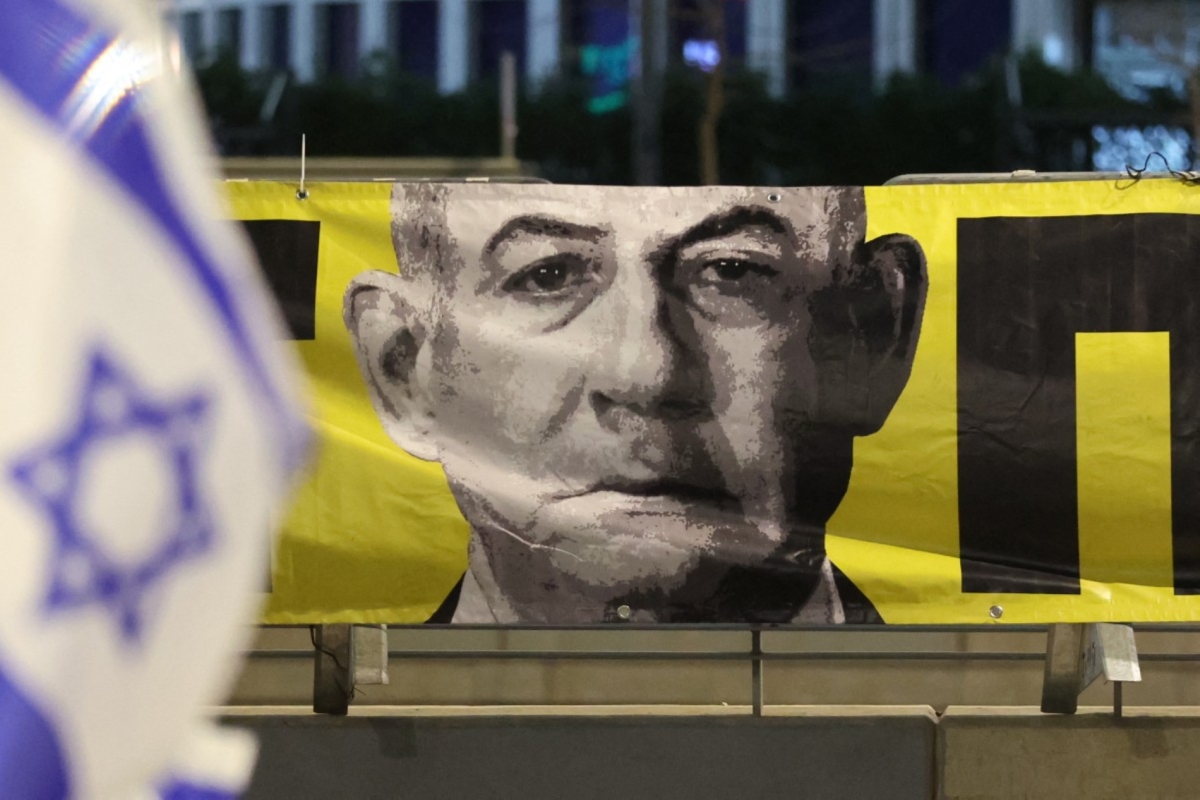There was a time in the not-too-distant past that Israelis told anyone who would listen that they lived in the only democracy in the Middle East. Today, far fewer dare to claim as much, in part because Prime Minister Benjamin Netanyahu’s political coup against the state envisioned by David Ben-Gurion has reached its apex.
Ben-Gurion, who chose to live in a humble farming community in the Negev, laid the foundations of Israel’s political, cultural, and social institutions. An elder statesman, he would have expected them to gently evolve over the decades, but not as radically as the transformations currently underway.
Netanyahu’s premierships have now surpassed those of Ben-Gurion in terms of longevity, and he is seeking to overtake one of Israel’s founders in terms of impact, too. Indeed, the changes he is forcing through with his religious and far-right coalition partners are the culmination of a decades-long effort to sever the state from Ben-Gurion’s founding vision.
Netanyahu has already altered the political culture, tightened media control, redirected national resources, reshaped the educational curriculum, and obstructed any path to a Palestinian state, but until recently, he had not dared penetrate the heart of the state apparatus.

That is changing fast, in no small part because he wants to evade prosecution for corruption and pre-empt the formation of an official commission investigating his role in what has come to be known as “the failure of 7 October 2023”. The great survivor of Israeli politics wants to survive a little longer.
By delaying upcoming elections through procedural manoeuvres and backroom deals, or by constructing political and bureaucratic mechanisms, he wants to enshrine his dominance over the right-wing and religious blocs. He may even seek to disqualify left-wing or Arab parties, precluding their participation in any future government.
Reversal of fortunes
Netanyahu has the proverbial ‘bit between his teeth.’ This is all the more surprising because, until recently, his political star appeared to be waning. Fatigued by endless political dramas and yearly elections that produced the same result, Israelis thought his career was nearing its end, possibly concluding with imprisonment.
Yet like his friend in the White House, Netanyahu has engineered a reversal of fortunes, gradually regaining political legitimacy. After dealing a decisive blow to Hezbollah, giving Iran a bloody nose, and getting some hostages out, both he and his right-wing Likud party are rising in the polls. Meanwhile, the opposition—which planned to use Gaza to unseat him—has splintered.
















